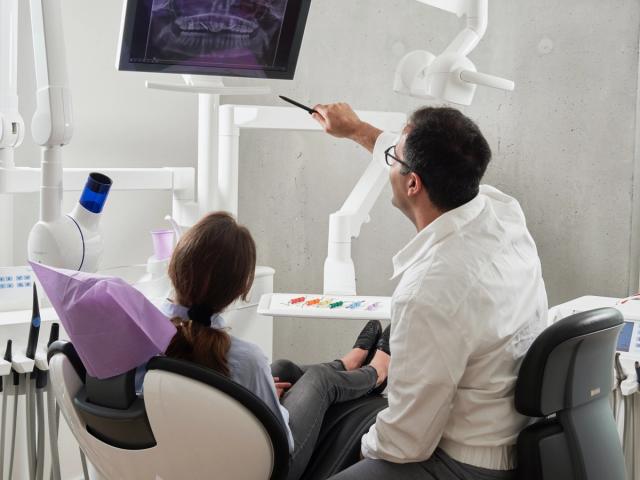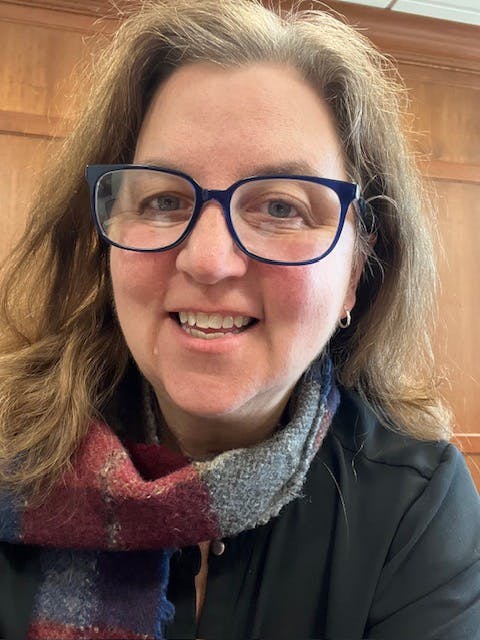
Learn the art of crafting an irresistible personal statement, a key element in the dental school application process. Discover the essential steps and techniques to create a captivating narrative that impresses admissions committees and showcases your unique qualities and aspirations.
Posted September 14, 2023



8:00 PM UTC · 30 minutes


An Introduction to Crafting a Compelling Dental School Personal Statement Understanding Your Purpose Identifying Your Unique Qualities and Experiences to Highlight Tips for Crafting an Engaging Introduction to Your Personal Statement Key Elements to Include in the Body of Your Dental School Personal Statement The Importance of Authenticity Examples of Effective Ways to Convey Your Passion for Dentistry Common Mistakes to Avoid in Writing Your Dental School Personal Statement How to Edit and Revise Your Dental School Personal Statement for Maximum Impact Tips for Tailoring Your Dental School Personal Statement to Specific Programs or Schools Strategies for Standing Out Among a Pool of Competitive Applicants Making the Most of Supplemental Essays and Interviews as Part of the Application Process Navigating the Admissions Process and What Comes Next After Submitting Your Personal Statement
If you're planning on applying to dental school, then you'll need to have a strong and compelling personal statement. Not only is this statement your chance to highlight your unique qualities and experiences as they relate to dentistry, but it's also a way to demonstrate your passion for the field and your dedication to pursuing a career in dentistry. In this article, we'll be discussing what it takes to write a winning dental school personal statement and how to make your application stand out.
First things first, let's start with the basics. Your personal statement is a one-page essay in which you have the chance to tell the admissions committee who you are and why you want to pursue a career in dentistry. This essay is a critical part of your dental school application and will be evaluated alongside your academic record, letters of recommendation, and any other supplemental materials.
When crafting your personal statement, it's important to keep in mind that the admissions committee is looking for more than just a list of your accomplishments and experiences. They want to see your personality shine through and get a sense of your passion for dentistry. This is your opportunity to showcase your unique perspective and explain how your experiences have led you to pursue a career in dentistry.
It's also important to remember that your personal statement should be well-written and free of errors. Take the time to proofread and edit your essay, and consider having someone else read it over as well. A polished and professional personal statement can make a big difference in the eyes of the admissions committee.
The purpose of your personal statement is to demonstrate to the admissions committee that you have the qualities and experiences necessary to succeed in dental school and in a career as a dentist. You should use this essay to showcase your personal attributes, your relevant experiences, and your passion for the field of dentistry.
It is important to note that your personal statement should not simply be a list of your achievements and experiences. Admissions committees are looking for applicants who can reflect on their experiences and demonstrate how they have grown and developed as a result. Your personal statement should tell a story about who you are and why you are passionate about pursuing a career in dentistry. It should also highlight any unique perspectives or experiences that you bring to the table, such as a background in a related field or a commitment to serving underserved communities.
To stand out in your application, you'll need to highlight your unique qualities and experiences. Think about what sets you apart from other applicants and consider how those qualities or experiences demonstrate your potential as a dental student and future dentist. Brainstorming these qualities can help you craft a more impactful and memorable essay.
One way to identify your unique qualities and experiences is to reflect on your personal and professional background. Consider your upbringing, cultural heritage, and life experiences that have shaped your values and perspectives. These can provide insight into your character and motivations for pursuing a career in dentistry.
Another approach is to think about your academic and extracurricular achievements. What have you accomplished that demonstrates your leadership, teamwork, or problem-solving skills? How have you contributed to your community or made a positive impact on others? These experiences can showcase your potential as a well-rounded and compassionate dental professional.
Your introduction should be engaging and compelling enough to grab the attention of the admissions committee. You can begin with a story that shows your passion for dentistry, or you can start with a quote that resonates with you. A good introduction should make the reader feel interested in your story, and want to keep reading.
Another effective way to start your personal statement is by posing a thought-provoking question that relates to your field of study. This can help to immediately engage the reader and make them curious about your perspective on the topic. Additionally, you can use statistics or data to highlight the importance of your chosen field and why it matters to you.
It's important to remember that your introduction sets the tone for the rest of your personal statement. Therefore, it's crucial to avoid cliches and generic statements that don't add any value to your story. Instead, focus on showcasing your unique experiences and qualities that make you a strong candidate for the program. By doing so, you'll be able to capture the attention of the admissions committee and leave a lasting impression.
Your body should include information about your relevant experiences and how they helped you develop the skills that are essential for success in dentistry. You should also discuss your academic background, specifically any science courses that you have taken, as these are highly relevant to your dental education. It is also important to discuss any extracurricular activities that demonstrate your various skills and qualities.
In addition to discussing your experiences, academic background, and extracurricular activities, it is important to highlight your motivation for pursuing a career in dentistry. This can include personal experiences that sparked your interest in the field, as well as your long-term career goals and how dentistry fits into those goals.
Another important element to include in your personal statement is your understanding of the challenges and responsibilities that come with being a dentist. This can include discussing the importance of patient care, the need for strong communication skills, and the ability to work well under pressure. By demonstrating your understanding of these challenges, you can show admissions committees that you are prepared for the rigors of dental school and a career in dentistry.
It is important to be authentic and honest in your personal statement. Do not try to create a persona or present any inaccurate information. Admissions committees are experts at gauging authenticity, and any deception can be highly detrimental to your application. Write from your heart and keep in mind that the purpose of your personal statement is to allow the committee to know you better.
One way to ensure authenticity in your personal statement is to reflect on your personal experiences and how they have shaped your desire to pursue dentistry. Share your unique story and highlight the qualities that make you a strong candidate for dental school. This can include your passion for helping others, your attention to detail, or your ability to work well under pressure.
Additionally, it is important to tailor your personal statement to the specific dental schools you are applying to. Research each school's mission statement and values, and incorporate them into your writing. This shows that you have done your homework and are genuinely interested in attending that particular school.
The admissions committee needs to see your passion for dentistry in your personal statement. You can begin by telling a story about a dental experience that inspired you, or you can describe your interest in a specific aspect of dentistry, such as orthodontics or oral surgery. You can also discuss how your past experiences or academic background has prepared you for your future in dentistry.
There are some common mistakes that can significantly decrease the quality of your personal statement. One of these mistakes is writing in a generic way without discussing your unique experiences. Another is writing a statement that focuses solely on your academic background without demonstrating your qualities and experiences of relevance to dentistry. You should also avoid writing personal statements that are too long or too short, making sure to follow the specified guidelines.
After you have finished your first draft, it is highly recommended to take the time to edit and revise your personal statement. One essential tip is to take a break before starting to revise so that you can look at your personal statement with fresh eyes. As you revise, ensure that your statement is clear, concise, and effectively conveys your message. You may also want to get feedback from friends, family, or professors as well as use online resources such as grammar checking tools.
An effective way to make your personal statement stand out is to tailor it to the specific dental school programs you are applying to. Research and find information about each school's curriculum, facilities, and mission statements, for example, and choose to include information that shows your interest and compatibility with the program specifically. This approach will show the committee that you are serious about attending their specific program and that you've done your homework.
Standing out in a pool of competitive applicants can be challenging, but it is vital to remember that if you stay authentic and communicate your passion for dentistry effectively, you have a good chance of making a lasting impression. Additionally, take the time to review what you wrote before making the final submission, use the appropriate formatting guidelines, and be certain you have represented yourself and your aspirations as holistically and accurately as possible.
In addition to your personal statement, there may be supplemental essays or interviews that are included as part of the dental school application process. It is essential to take these components seriously as they can play a significant role in the final decision. Be sure to prepare for these essays and interviews carefully, using tips and tools online and even seeking advice from current dental students or former colleagues. Remember, by taking advantage of all aspects of the application process, you can make your candidacy stand out.
The admissions process can be stressful, but always remember why you're applying and what your end goal is. It is important to stay organized throughout the application process, keeping track of deadlines and all required documents. After submitting, you can breathe easy, awaiting a decision. However, if you're putting all your eggs in one basket, you may want to consider applying to multiple dental schools. Knowing what to expect and what you'll need to do can help put your mind at ease and prepare you for whatever may come next.
Writing a winning dental school personal statement takes time, effort, and commitment. By keeping the tips mentioned in this article in mind and staying true to yourself and your motivations, you will have an excellent chance of getting admitted to the dental school of your choice, and ultimately following the path you envisioned for your professional life. Good luck!
Want to learn more about the process for applying to dental school? Take a look at these resources to take your application to the next level:
Leland coaches have helped thousands of people achieve their goals. A dedicated mentor can make all the difference.